David Wilk interviews Russell Banks about Lillabulero magazine
February 4, 2018 by David
Filed under Publishing History, PublishingTalks
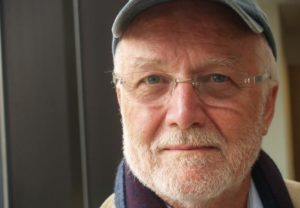 Publishing Talks began as a series of conversations with book industry professionals and others involved in media and technology, mostly talking about the future of publishing, books, and culture. As every media business continues to experience disruption and change, I’ve been talking with some of the people involved in our industry about how publishing might evolve as it is affected by technology and the larger context of culture and economics.
Publishing Talks began as a series of conversations with book industry professionals and others involved in media and technology, mostly talking about the future of publishing, books, and culture. As every media business continues to experience disruption and change, I’ve been talking with some of the people involved in our industry about how publishing might evolve as it is affected by technology and the larger context of culture and economics.
Over the past few years, the series has expanded to include conversations on many other literary and publishing topics. I’ve talked with editors and publishers who have been innovators and leaders in independent publishing in the past and into the present, and will continue to explore the ebb and flow of writing, books, and publishing in all its forms and formats, to help document the breadth and depth of modern literary publishing.
Listeners will most likely know of Russell Banks for his powerfully written and evocative fiction. His novels include The Darling, The Sweet Hereafter, Cloudsplitter, Rule of the Bone, Affliction, Continental Drift, Searching for Survivors, Trailerpark, among others, as well as a collection of short stories, A Permanent Member of the Family.
The prolific Banks has written poems, stories, and essays that have appeared in The Boston Globe Magazine, Vanity Fair, The New York Times Book Review, Esquire, Harper’s and other magazines and journals. His most recent book is the memoir entitled Voyager.
Banks has been widely honored, having won the Ingram Merrill Award, the John Dos Passos Award, the Literature Award from the American Academy of Arts and Letters. Continental Drift and Cloudsplitter were Pulitzer Prize finalists; Affliction, Cloudsplitter and Lost Memory of Skin were PEN/Faulkner Finalists. He is also the founder and president of Cities of Refuge North America.
I think Russell Banks is among the best writers we have. I’ve been moved and challenged by his writing for a very long time. But the main reason I wanted to talk to Russell for this Publishing Talks series is that he was the co-editor of the important literary magazine and press, Lillabulero. With poet Bill Matthews, Russell started publishing Lillabulero when they were students at UNC in Chapel Hill in 1966. That magazine was an important part of the sixties generation of literary magazines and presses, and along with its many peers and competitors helped build a new literary culture that we are still experiencing today.
In those days, mimeographs and a new generation of small offset printing presses, along with inexpensive postal rates, enabled a low cost of entry for writers and editors to reach a wide audience all over the country and to create a new community of readers that were equally hungry for new work as much as the writers themselves sought audiences. Russell and Bill were at the center of much of the creative energy that was circulating around the country at that time, and Lillabulero quickly earned a reputation for quality writing from new writers.
Bill Matthews passed away far too young, and is missed by all those who knew him and his work; I hope this conversation will help bring him wider attention. And it was a great pleasure and honor for me to have this opportunity to speak with Russell about this period in his illustrious literary career.
Bill Matthews’ son, Sebastian, interviewed Russell for the Fiction Writers Review a few years ago, and that interview is a valuable source as well, and the Paris Review interview with Banks is flat out terrific.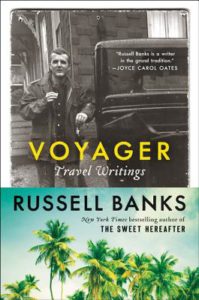
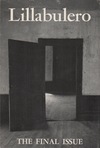
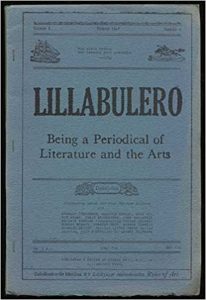
Podcast: Play in new window | Download
David Wilk interviews poet and publisher Bill Mohr
March 24, 2017 by David
Filed under Publishing History, PublishingTalks
 Publishing Talks began as a series of conversations with book industry professionals and others involved in media and technology about the future of publishing, books, and culture. As we continue to experience disruption and change in all media businesses, I’ve been talking with some of the people involved in our industry about how publishing might evolve as our culture is affected by technology and the larger context of civilization and economics.
Publishing Talks began as a series of conversations with book industry professionals and others involved in media and technology about the future of publishing, books, and culture. As we continue to experience disruption and change in all media businesses, I’ve been talking with some of the people involved in our industry about how publishing might evolve as our culture is affected by technology and the larger context of civilization and economics.
I’ve now expanded the series to include conversations that go beyond the future of publishing. I’ve talked with editors and publishers who have been innovators and leaders in independent publishing in the past and into the present, and will continue to explore the ebb and flow of writing, books, and publishing in all sorts of forms and formats, as change continues to be the one constant we can count on.
For the past several years, I’ve been talking to editors and publishers of independent presses about their work, including a number of important literary publishers.
Many years ago, I was introduced to the amazing poetry and writing scene in the Los Angeles area, centered in Venice Beach with the Beyond Baroque Literary Center (which was founded by poet George Drury Smith in 1968) through an old family friend, Alexandra Garrett. Surprisingly to many, Los Angeles has an amazing literary history – there’s much more there than just tinseltown. And of course Charles Bukowski and John Fante lived and worked there, John Martin’s Black Sparrow Press was born in LA, and there have been and now are thriving poetry scenes in various locales throughout the urb over the years. Doug Messerli’s Sun & Moon Press is another notable LA publisher we’ve spoken with.
There were several terrific bookstores in LA in those years, and quite a few great literary magazines and small presses over the years. One of the central individuals in the LA poetry movement of the seventies, eighties and nineties is Bill Mohr, whose magazine and press, Momentum, was a focal point for many writers in and around Los Angeles. Bill and I were friendly in those years but since lost touch, so it was a pleasure to get a chance to talk to him about Momentum for this series of interviews about the independent presses and magazines of the last half century.
Bill was born in Norfolk, Virginia, and grew up there, then moved to Los Angeles to do some acting with various small theater companies, including the Burbage Theater Ensemble. He published and edited Momentum magazine for five years, and then founded Momentum Press in the early 1980s. Between 1975 and 1988, Momentum published about 25 books including Leland Hickman’s Great Slave Lake Suite, which was one of five finalists for the Los Angeles Times book prize in 1980.
Bill also edited two important LA-focused anthologies, The Streets Inside (1978) and Poetry Loves Poetry (1985). During much of this time Bill worked as a blueprint machine operator and a typesetter, and later went to graduate school to start a new career as a scholar and professor. Mohr has been a visiting scholar at the Getty Research Institute in Los Angeles, as well as an Andrew W. Mellon Fellow at the Huntington Library in San Marino, CA. A chapter from his work-in-progress on West Coast poetry during the Cold War was included in The Sons and Daughters of Los: Culture and Community in L.A. (Temple University Press). For over 25 years he has taught creative writing in medium and minimum security prisons in Chino and the University of California, San Diego, and Idyllwild Arts, in Idyllwild, CA.
Bill is now a professor in the Department of English at California State University, Long Beach. He has a Ph.D. in Literature from the University of California, San Diego, and has taught at CSU Long Beach since 2006. His poems, prose poems and creative prose have appeared in dozens of magazines in the past 40 years, including 5 AM, Antioch Review, Beyond Baroque, Blue Collar Review, Blue Mesa Review, Caliban (On-line), Miramar, ONTHEBUS, OR, Santa Monica Review, Skidrow Penthouse, Solo Nolo, Sonora Review, Spot, Upstreet, Wormwood Review, and ZYZZYVA. His volumes of poetry include Hidden Proofs (1982); Penetralia (1984); Bittersweet Kaleidoscope (2006); and a bilingual volume published in Mexico, Pruebas Ocultas (Bonobos Editores, 2015). A CD and cassette release of spoken word was produced by Harvey Robert Kubernik and released by New Alliance Records in 1993.
This conversation was great fun for me, and I hope will be an important addition to the oral history of independent publishing over the last decades.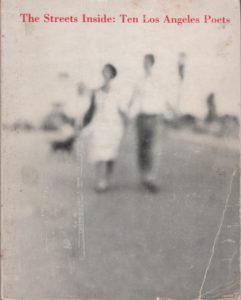
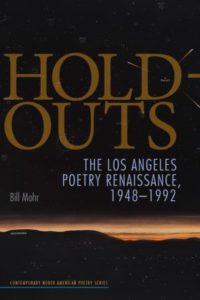
Podcast: Play in new window | Download
David Wilk interviews publisher and poet Merrill Leffler
December 18, 2016 by David
Filed under Publishing History, PublishingTalks
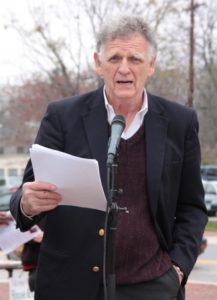 Publishing Talks began as a series of conversations with book industry professionals and others involved in media and technology about the future of publishing, books, and culture. I’ve talked with many people about how publishing is evolving as our culture is affected by technology within the larger context of changes in civilization and economics.
Publishing Talks began as a series of conversations with book industry professionals and others involved in media and technology about the future of publishing, books, and culture. I’ve talked with many people about how publishing is evolving as our culture is affected by technology within the larger context of changes in civilization and economics.
I’ve broadened the series to include conversations with editors and publishers who have been innovators and leaders in independent publishing both in the past and into the present. Through these talks, I hope to continue to explore the ebb and flow of writing, books, and publishing in all forms and formats, as change continues to affect our lives.
For the past several years, I’ve been talking to editors and publishers of independent presses about their work, including a number of important literary publishers. Most recently, I had the pleasure of speaking with Merrill Leffler, the co-founder and publisher of Dryad Press. Leffler and his publishing program have been fixtures in the Washington, D.C. area poetry and indie press scene, but are by no means local in interests or scope of work.
Merrill and his friend Neil Lehrman published the first issue of Dryad, a small poetry magazine, in 1968. Their journal, like many others in that era, began as a quarterly. After the first several issues, their publication dates became more variable, and in roughly 1975, Dryad evolved into Dryad Press — two issues of the magazine were sent to subscribers as books. In a further evolution over the years Dryad expanded from publishing poetry to include fiction and non-fiction as well.
With almost a half century of self-taught publishing behind him, Merrill Leffler, a writer and poet of some note himself, has much to talk about. In this conversation, we talked about the history of Dryad and its evolution as part of the modern era of independent publishing, as well as poetry, fiction, and much more.
Compared to many other writers and independent press publishers, Leffler has an unusual and singular background. He was trained as a physicist, worked for NASA’s rocket program and was the senior science writer at the University of Maryland Sea Grant Program, where he focused on research involving the biology of the Chesapeake Bay. In addition, for a number of years he taught English at the US Naval Academy in Annapolis.
Merrill Leffler has also published three collections of his poetry, most recently a collection called Mark the Music. There’s a great article about him (“Can a poet lose weight by snacking on poems?”) that mentions his role as the Poet Laureate of Takoma Park, Maryland here. And an excellent piece about Dryad and its history by Leffler at a DC area literary website called Splendid Wake.
Leffler is warm, generous, and was a pleasure for me to speak with. I hope you enjoy this interview as much as I did! 
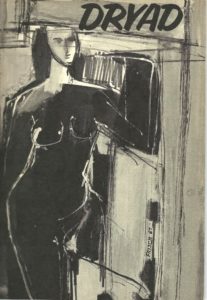
Podcast: Play in new window | Download
David Wilk interviews poet and publisher Bill Corbett
October 30, 2016 by David
Filed under Publishing History, PublishingTalks
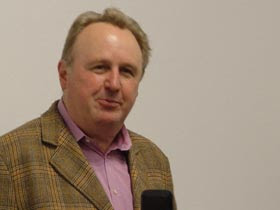 Publishing Talks began as a series of conversations with book industry professionals and others involved in media and technology about the future of publishing, books, and culture. As we continue to experience disruption and change in all media businesses, I’ve been talking with some of the people involved in our industry about how publishing might evolve as our culture is affected by technology and the larger context of civilization and economics.
Publishing Talks began as a series of conversations with book industry professionals and others involved in media and technology about the future of publishing, books, and culture. As we continue to experience disruption and change in all media businesses, I’ve been talking with some of the people involved in our industry about how publishing might evolve as our culture is affected by technology and the larger context of civilization and economics.
I’ve now expanded the series to include conversations that go beyond the future of publishing. I’ve talked with editors and publishers who have been innovators and leaders in independent publishing in the past and into the present, and will continue to explore the ebb and flow of writing, books, and publishing in all sorts of forms and formats, as change continues to be the one constant we can count on.
For the past several years, I’ve been talking to editors and publishers of independent presses about their work, including a number of important literary publishers. It’s a great pleasure for me to add Bill Corbett to this group. He’s been a key figure in the Boston literary scene for more than forty years, though he has now moved to Brooklyn.
Corbett’s house in the South End was an essential literary salon for local and many visiting artists, poets, and writers. Corbett has been active in what has been known as the “New York School” of poets, with a deep and abiding interest in the intersections of art and poetry. In a review of Corbett’s All Prose, Kevin Gallagher said “Corbett is ambassador to a strange land.”
Editing and publishing have also been central to Corbett’s work. He edited the literary journal Fire Exit with Fanny Howe and The Boston Eagle, with Lewis Warsh and Lee Harwood, wrote for the Boston Phoenix, and has been involved with literary magazines Ploughshares, Agni, and Grand Street. In 1999, Corbett founded Pressed Wafer, a small press publishing poetry, essays, and art writing. Corbett taught writing at MIT, and also has taught at Harvard and Emerson.
Patrick Pritchett summed up Corbett’s work rather well as follows:
For several decades now, Corbett has been one of our leading men of letters – the phrase itself has been rendered almost extinct in this age of ubiquitous bloggery and relentless peer-review – but I use it here to indicate a breadth of range and a fineness of attention that once upon a time was the norm, rather than the exception. As poet, essayist, memoirist, art critic, literary historian, publisher and tireless promoter of other writer’s work, Corbett is – yet ought not to be – sui generis. But even if the present time were more thickly populated by writers of comparable range, he would still be a force to be reckoned with, in a category of his own.
In this conversation, we talked about a wide range of topics, but it seems we may have barely scratched the surface of Corbett’s work in art and writing. I hope we will have a chance to talk again soon.
Links:
Pritchett essay about Bill Corbett on the blog Writing the Messianic
Pressed Wafer books “poetry fiction essays art memoir etc”
Podcast: Play in new window | Download
